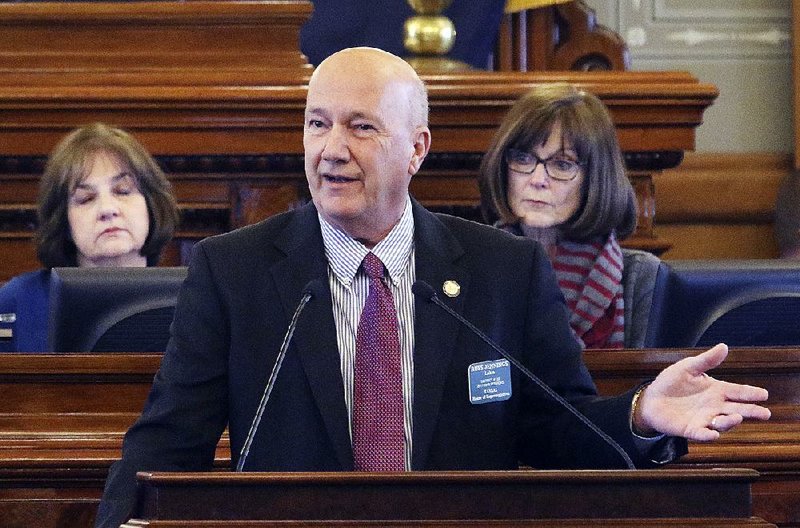TOPEKA, Kan. -- Kansas Gov. Sam Brownback vetoed a bill Thursday that would have expanded Medicaid in the state under terms set by the Patient Protection and Affordable Care Act. The veto pits him against the state Legislature -- including many members of his own party -- which overwhelmingly voted in favor of the measure earlier this week.
The bill now goes back to the Legislature, where supporters of the bill will try to wrangle a two-thirds majority to override the governor's veto, with a vote first in the state House as early as Monday. The bill is just five votes away from becoming veto-proof -- three in the House and two in the Senate.
"I am vetoing this expansion of Obamacare [the Affordable Care Act] because it fails to serve the truly vulnerable before the able-bodied, lacks work requirements to help able-bodied Kansans escape poverty, and burdens the state budget with unrestrainable entitlement costs," the Republican governor said in a statement released Thursday.
He added that "most grievously" the bill "funnels more taxpayer dollars to Planned Parenthood and the abortion industry."
The expansion would make 150,000 additional low-income Kansas residents eligible for Medicaid. Critics have argued that expanding Medicaid would increase the federal government's power at a time of deep uncertainty in Washington. Supporters say the bill would help the state's most vulnerable residents and also alleviate budget deficits hospitals face because of unpaid medical costs, particularly in rural areas.
The Kansas Senate on Tuesday voted 25-14 to pass the bill -- with 16 Republicans in favor of expansion and 14 opposed. In a vote last month, the Kansas House of Representatives approved the bill 81-44.
State lawmakers, including members of his own party, have regularly butted heads with Brownback in recent years. Several senators spoke optimistically earlier this week about assembling a veto-proof coalition.
Voters last year turned on the governor and elected more Democrats and moderate Republicans to the Legislature, forcing a debate. Advocates for the uninsured never abandoned their push, and the Kansas Hospital Association backed an expansion, believing it could keep dozens of rural hospitals open.
"Are we going to wait for some more hospitals to close?" said state Rep. Susan Concannon, a rural central Kansas Republican. "Are we going wait until we have people die that can't get insurance?"
Republican critics of an expansion pointed to President Donald Trump's promise to repeal and replace the 2010 health care law. Brownback argued in his annual State of the State address in January that expanding Medicaid under its provisions would be "airlifting onto the Titanic."
But the failure of a repeal effort by Trump and U.S. House Republican leaders last week buoyed supporters' hopes. Democratic governors in North Carolina and Virginia also want to expand their Medicaid programs; Maine has an expansion proposal on the ballot in November.
Obama's health care law encouraged states, including Arkansas, to expand their Medicaid programs by promising to pay most of the costs. Thirty-one have, including some led by Republican governors.
Brownback's administration calculated that the state would still face significant extra Medicaid expenses as it wrestles with projected budget shortfalls totaling more than $1 billion through June 2019. The state's budget woes followed personal income tax cuts in 2012 and 2013 that Brownback championed and slumps in agriculture and energy production.
"This one piece of legislation could chart a course of financial disaster for us for a long time," said Republican Rep. Dan Hawkins, the chairman of the House health committee.
The hospital association argued that the extra federal dollars would ripple through the economy, and it calculated that the state would see a budget gain.
Information for this article was contributed by Jose A. DelReal of The Washington Post and by John Hanna and Allison Kite of The Associated Press.
A Section on 03/31/2017

